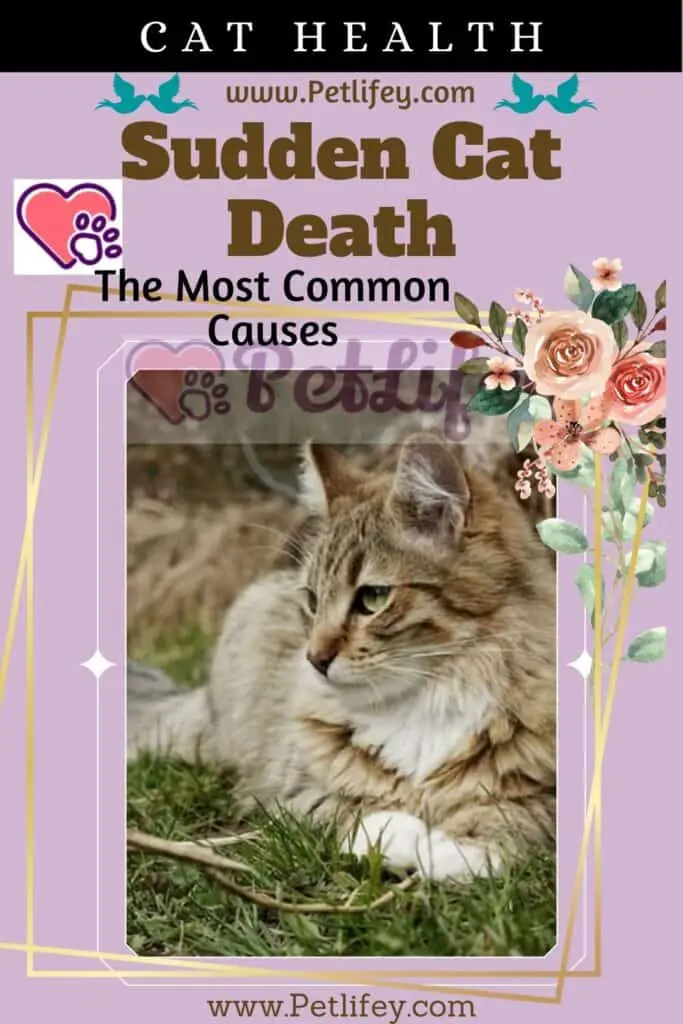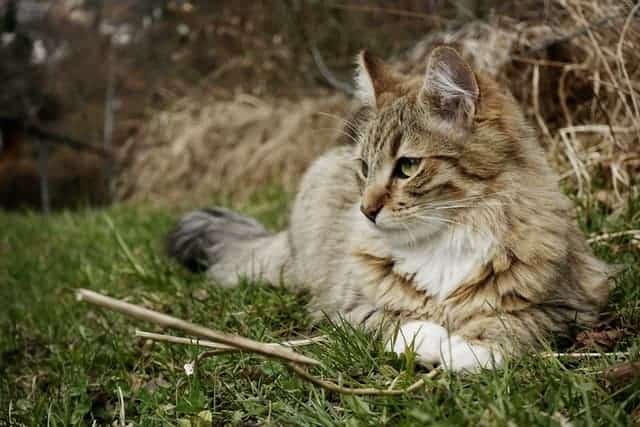The sudden death of your cat is a painful and often traumatic event, which unfortunately can also occur in young specimens: here are the most frequent causes.

Coping with the sudden and completely unexpected death of your cat is very difficult, especially if the cat is young and apparently in perfect health.
Those who suffer this serious loss often find themselves dealing with remorse and are assailed by a thousand doubts about what they could have done to save the life of their beloved cat , even if in reality it is very difficult to try to interpret the signs of sudden death. of the cat except when it is, unfortunately, too late.
However, trying to identify the most common causes of these unexpected deaths can help to try to prevent at least some of them: be careful, however, because the cat is very good at hiding its signs of discomfort and identifying these often imperceptible symptoms can be really hard. . If you notice any change in your cat, even subtle, take him to the vet right away: it could save his life.
Sudden cat death, why it happens and causes frequent

Cats usually have quite a long life expectancy, with an average safely exceeding 15 years of age. There are slight differences between the average life span of a house cat compared to that of a street cat: the latter is more exposed to various kinds of dangers and often pays the price of ending up under a car.
Among the main causes of death in a cat of any age, in addition to traffic accidents, there are also the main feline heart diseases or the great problem of cat poisoning. Elderly cats, on the other hand, tend to get sick and die from undiagnosed diseases such as those of the urinary tract, or feline renal failure.
But what happens to the cat who dies in a totally unexpected way ? The sudden death of a cat can be due to a number of different causes , some particularly frequent in this type of episode. Let’s see what the most common possibilities are.
Cat dies from trauma
The trauma can be of various kinds: the aforementioned road accidents, accidental injuries, falls or by other animal attacks are some of the most frequent causes and likely for a cat that lives in the street, or is accustomed to quit alone.
Cardiomyopathies and heart diseases in cats
It happens much more often than you might think: cats suffer from heart disease, sometimes congenital, which often do not give obvious symptoms and therefore remain undiagnosed. In some cases it is possible that the cat has difficulty breathing, in others the cat complains of severe pain in the hind legs with difficulty in moving.
There are some diseases that manifest themselves in adulthood, probably when the cat is nearing old age due to the inevitable wear of the heart structures. A very common example is hypertrophic cardiomyopathy.
There are also other congenital heart diseases, present in cats from birth, such as heart valve malformations or heart murmurs in cats .
Symptoms of heart disease in domestic cats are usually mild and varied, and may include for example: weakness and refusal of physical activity, labored breathing during sleep, fainting or collapsing, chronic coughing.
Heart infarction in the cat
Infarction or heart attack in cats is caused by an obstruction of the blood flow that causes the lack of flow to the myocardium, which slowly and inexorably dies when it stops working. The possibility of a heart attack in cats is quite rare, however it is among the possible causes that can lead to the sudden death of the animal , which often occurs during sleep.
Cardiopulmonary philariosis
The heartworm is a disease that can bring the cat to such a sudden and unexpected death: this parasitic disease is transmitted by an infected mosquito that injects the larvae in the animal’s blood, which mature during the following weeks and they can creep into the cat’s heart, killing the animal even years after the original sting.
Among the most evident symptoms of contagion there are inappetence in cats with relative weight loss, breathing difficulties, cough and vomiting. Rarely, filariasis also involves difficulty walking, convulsions and fainting: unfortunately, the final epilogue is usually the death of the animal.
Chronic renal failure
Renal failure is very common in cats: this chronic disease prevents the body from purifying itself because the kidneys progressively stop functioning, so toxins accumulate in the blood, gradually poisoning the affected animal.
The signs of concern are weight loss, lethargy, lack of appetite and more or less frequent episodes of vomiting in cats . Some cats will tend to drink more and feline incontinence may arise .
Urinary obstruction in the cat
Urinary obstruction can also lead to sudden cat death: blockage in the urinary tract is very common especially in males and can be recognized by the pain that the animal complains at the moment of urination. Urinary blockage must be treated immediately, this veterinary emergency is in fact considered among the most dangerous for the life of domestic cats and, if not treated in time, can lead to sudden death within a period of about 72 hours.
Intoxication
Exposure or ingestion to drugs and toxins can be lethal for the cat and represents a very frequent cause of death among animals living on the street: this does not mean that it cannot also occur in cats living in apartments, due to of accidents, carelessness or mistakes of an uninformed boss.
The cat is predisposed to this type of problem also due to its tendency to lick the hair for normal daily cleaning routines: this habit can carry toxins from the outside inside the body and cause a reaction with a fatal ending.
Among the poisons that the cat can also find at home we remember for example paracetamol: aspirin is a dangerous drug for cats and should not be administered for any reason. Other toxins that frequently kill cats are plants that are toxic to the cat, insecticides, rat poison and detergents or deodorant and cleaning products for the home.
Cat affected by stroke
If the cat is hit by a stroke, it is highly probable that it will die a quick, sudden and unexpected death : the stroke, in fact, prevents the blood supply to the brain and from there its effects soon spread throughout the body. .
Stroke usually occurs in older cats, from 9 years of age onwards, and among its main causes are for example feline diabetes , brain tumor, liver disease, respiratory disease, hyperthyroidism, blood pressure high, heart disease but also trauma, infections and some types of parasites.
Cat dead of sepsis
Sepsis represents a very serious infection in the cat’s body that condemns him to certain death due to the onset of complications such as multi-organ failure and acute breathing difficulties. The worsening of the infection causes septic shock , very dangerous for cats and usually deadly immediately.
Usually this condition occurs in specimens suffering from bowel cancer or with intestinal obstruction, probably due to the ingestion of foreign bodies by the cat . Peritonitis, pneumonia, urinary tract infections and the consequences of a dental disease can also kill the cat suddenly.
The danger and consequent mortality of sepsis derives above all from the fact that its symptoms appear when it is too late to intervene: some cats become inappetent, drool excessively, have dehydration, vomiting and diarrhea but also fever and increased respiratory rate.






